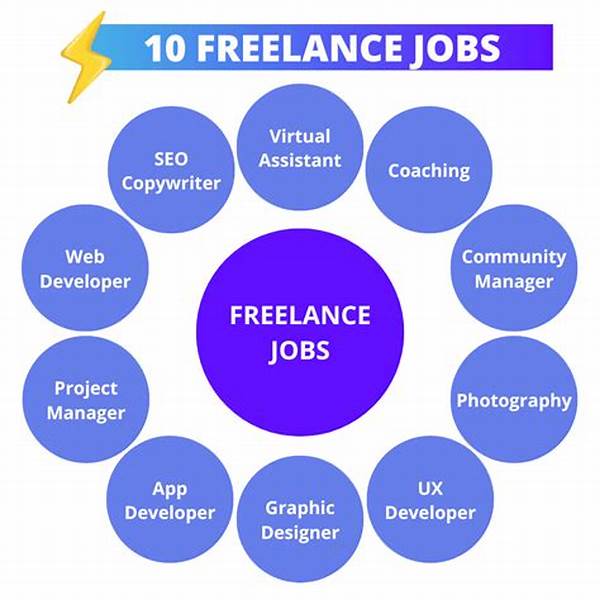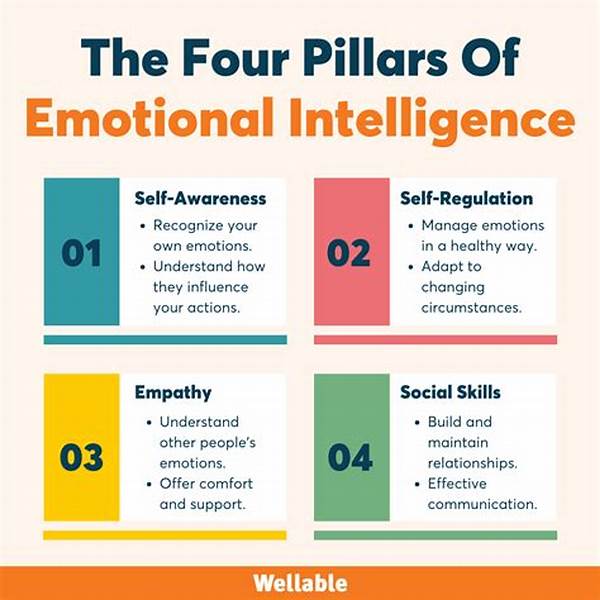
What is Freelancing?
Freelancing, a term that has gained immense popularity over the years, is not just a buzzword but a revolutionary way of working. Imagine waking up to the freedom of setting your own hours, choosing projects that genuinely interest you, and not having to deal with the monotony of a typical office environment. Sounds like a dream, right? But for millions, this is their reality, thanks to the thriving gig economy. So, what is freelancing? At its core, freelancing involves offering your skills or services to multiple clients on a project basis, often without long-term commitment. It provides the liberty to work on diverse projects ranging from writing, graphic designing, programming, to virtually anything that can be done remotely—and here, the world is truly your oyster.
Read More : Freelance Marketplaces Compared Which To Choose
The allure of freelancing is further accentuated by the global opportunities it presents. For some, it’s the chance to escape their 9-to-5 grind, while for others, it means turning side hustles into full-time gigs. The exciting part is, freelancing doesn’t tie you to one location—you can work from a beach in Bali or a cozy cafe in Paris, as long as deadlines are met and quality is assured. It’s a lifestyle choice that many are leaning towards, especially in an era where work-life balance ranks high on priority lists.
Freelancers are their own bosses. They enjoy the thrill of setting boundaries, dictating their workload, and having control over their income. It’s challenging yet rewarding—you are the captain of your ship, and the sea is vast with possibilities. However, it’s essential to note that this independence comes with its set of challenges, like managing finances, finding consistent work, and juggling multiple clients, but for those who thrive on variety and independence, it’s a risk worth taking.
The Flexibility and Freedom of Freelancing
The major selling point of freelancing is undoubtedly the flexibility it offers. While traditional jobs often come with a fixed schedule, freelancing turns the typical workday on its head. There’s a different kind of satisfaction when you can choose to work at your most productive hours, adapt your schedule around personal commitments, and still manage to meet professional deadlines. Freelancing allows individuals to curate their days, leading to increased productivity and job satisfaction.
Objectives of Freelancing
Freelancing, with its dynamic landscape, offers a plethora of compelling objectives for those choosing this path. At the top of the list is autonomy—it’s akin to running your own small business. Freelancers take charge of the entire project lifecycle, from initial contact to final delivery, thereby acquiring a sense of ownership that is often absent in traditional employment. This autonomy comes along with the opportunity to carve a unique professional identity, showcasing one’s creativity and problem-solving skills through diverse project portfolios.
Another key objective is the opportunity for financial growth. Unlike salaried positions, where income potential is capped, freelancing offers the possibility of incremental earnings. By cultivating a robust client base and continually enhancing their skill set, freelancers can negotiate higher rates. Even though the income might be inconsistent initially, over time, strategic freelancers can build lucrative careers that rival and even surpass traditional roles.
Venturing Into Freelancing: A Strategic Overview
Embarking on the freelancing journey also aligns with the objective of achieving a better work-life balance. In a world where professional burnout is becoming increasingly common, freelancing presents an opportunity to prioritize mental well-being. By having control over their workload and being able to work from the comfort of their chosen environment, freelancers can achieve a harmony between personal and professional life, an invaluable asset in today’s fast-paced world.
Building a Freelance Brand
Lastly, an essential objective for freelancers is to develop their brand. It’s not just about selling services; it’s about crafting a narrative that resonates with potential clients and differentiates one from the competition. Through personal branding, freelancers can establish themselves as thought leaders and experts in their fields, paving the way for exciting opportunities and collaborations.
Topics Related to What is Freelancing
Introduction to Freelancing
Freelancing, a modern approach to employment, is reshaping the way professionals engage with work. Rooted in flexibility and empowerment, it allows individuals to take charge of their careers while bypassing conventional employment structures. The beauty of freelancing lies in its diversity, embracing a wide range of skills and industries, attracting a varied demographic that seeks more than the typical career ladder. Whether you’re eyeing the possibility of transitioning from a corporate job or you’re freshly entering the workforce with an entrepreneurial mindset, freelancing offers a viable avenue to explore.
In an era where technology bridges geographic divides, freelancing capitalizes on digital tools, enabling a seamless connection between clients and service providers globally. The gig economy, synonymous with freelancing, is booming, offering a testament to its relevance and potential. However, success in this domain isn’t merely about possessing a marketable skill—it’s about effectively marketing your talent, maintaining client relations, and continuously evolving in a competitive marketplace. As the world continues to embrace remote work, understanding and leveraging the nuances of freelancing could be your ticket to personal and professional fulfillment.
Why Freelancing is the Future of Work
Freelancing, often dubbed the future of work, holds significant promise in an era dominated by rapid technological advancements and evolving workforce preferences. With companies increasingly valuing skills over traditional credentials, freelancing stands on the brink of revolutionizing employment paradigms. By allowing a customizable work experience tailored to individual strengths and schedules, freelancing exemplifies the adaptability and resilience required in today’s dynamic job market.
Navigating the Freelancing Journey
As freelancers navigate this journey, they wear many hats—from marketing and accounting to project management—enhancing their professional acumen. The decentralized nature of freelancing also promotes diversity, giving voice to a global talent pool and fostering cross-cultural collaborations. Despite the inherent challenges, such as securing a steady flow of assignments and managing unpredictable income streams, the benefits like diversified experiences and professional growth far outweigh the drawbacks.
Illustrations of What is Freelancing
Freelancing: A New Era of Employment
Freelancing undeniably signifies a new era of employment, where rigid office confines transform into flexible workspaces. It’s about more than independence or escaping routine—it’s about the chance to redefine how we perceive work, balancing passion with professional pursuits. Individuals, empowered to make choices about the type of work they engage in, experience a heightened sense of purpose and motivation absent in conventional roles. But what is freelancing really all about in practical terms, and how is it reshaping the global workforce?
The Economics of Freelancing
The economics of freelancing reveal that nearly one-third of capable adults in nations such as the United States are engaging in freelance work. This shift is not only a reflection of personal preferences but also indicates an institutional acknowledgment of freelance power. Companies recognize the value of freelance contributions in terms of innovation, agility, and cost-effective scalability, solidifying freelancing as a staple—not a trend—in the employment sector.
Freelancing and Skill Diversification
Freelancing also encourages skill diversification. Unlike traditional roles, where skill application might become monotonous, freelancers are continuously learning and adapting to meet the unique requirements of varied contracts. This continual skill acquisition ensures freelancers remain ahead in their fields, often making them more competitive than their traditionally employed counterparts. The emphasis on diversification is crucial—it equips individuals to pivot more effectively amidst market fluctuations and aligns with modern economic demands for versatile expertise.
The landscape of work is transforming, and freelancing is at the helm of this evolution. It’s not merely an alternative form of employment; it’s a reimagining of how we work, why we work, and the environment in which we thrive. As technology continues to advance, the bridges between traditional employment and freelancing continue to blur, reminding us that the future of work is as dynamic and flexible as the world we live in.
Each individual’s journey in freelancing is unique, defined by personal objectives and broader economic trends. Whether as a temporary endeavor or a purposeful career path, understanding what freelancing entails—and embracing its potential—can pave the way for a fulfilling, engaging work life.


